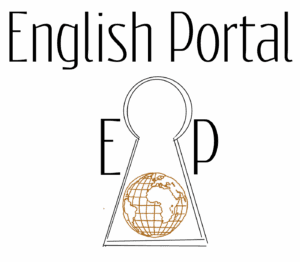This week in our English blog we are going to focus on reading skills. One of the most important reading skills is the ability to guess the meaning from context when we encounter new or unfamiliar words. What does this mean? What is context? Context is information that helps us understand other ideas.
Why is this so important? There are several reasons. First, you might not always have access to a dictionary. Second, constantly stopping to use a dictionary can take the enjoyment out of reading. Also, the definition you find in the dictionary might not be the same meaning that goes with the word in the particular context that you have encountered it. Finally, sometimes words are used in creative, informal or idiomatic ways and we need to use our imagination and powers of deduction to truly understand!
Let’s try a few examples to help us practice guessing the meaning from context. Believe it or not, this can be kind of fun sometimes. Try to think of it like solving a puzzle! Let’s look at one word in several different contexts.
Example 1: That man is nefarious.
Ok. Our first piece of vocabulary is: nefarious. The first example does not have a lot of context, but let’s examine it. What do we know? Let’s remove the word and only look at the context:
That man is _________________.
Ok. We have a noun. What is the noun? “Man”. It also looks like “man” is the subject of the sentence. We also have “is”, which is the verb “to be”. We can think of the verb “to be” sort of like “=” in math.
So… the man= ___________.
Hmm. What is the man? It’s time to use what we learned in our earlier post about parts of speech. We can use this context to guess the part of speech of the word “nefarious”.
The man is nefarious.
Based on this context, “nefarious” is probably a noun or an adjective.
For example, we could have a sentence that is similar to our example in which we use either a noun or an adjective, like this:
The man is a doctor.
(noun)
The man is happy.
(adjective)
Because our example doesn’t have an article, like “a”, maybe “nefarious” is not a noun. Let’s guess that it is an adjective. This is probably all the information that we can reasonably deduce from this example. Let’s look at the vocabulary in another context.
Example 2: Some people feel that big corporations are very nefarious.
We have more information in this second example. Instead of the subject “man”, we have the subject “big corporations”. We also have an adverb, “very”. This probably confirms that “nefarious” is an adjective and that the adverb “very” is modifying it.
Some people feel that big corporations are very nefarious.
Our new subject is also a little more specific than “man”.
Corporations are companies, and we are talking about big companies here. What adjectives do we think of when we think of big companies? Some possibilities are: rich, complex, powerful, etc.
We are getting a little closer to our meaning now.
Let’s add some more context to the second example.
Example 3:
Some people feel that big corporations are very nefarious because they hurt the environment and do not pay their employees enough money.
Alright, now we have a lot of information:
“Hurt the environment”
“Do not pay their employees enough money”
Are these ideas positive or negative? They sound pretty negative. Now we have arrived at another important idea that we need to consider when we try to guess the meaning of vocabulary: connotation. Connotation means the way that wordsfeel.
Words often have positive or negative feeling. Sometimes they don’t feel positive or negative. Sometimes we call this feeling neutral.
What about “nefarious”? Based on our new information, it seems to have a negative connotation because we are talking about hurting the environment and not paying workers enough money.
Ok. It’s an adjective. It describes companies. It is negative. Now we can probably make many guesses:
bad terrible
heartless greedy
evil awful
Let’s stop here for a moment and emphasize something: when you guess the meaning of new vocabulary from context, your guess doesn’t always need to be 100% accurate in order for you to understand the general idea of the reading passage. Your guess needs to be logical. Using this as a guide, all of the words above are pretty good guesses for the meaning of “nefarious”.
For the record, the word that comes closest from our list is the word “evil”.
We can use “nefarious” to describe things like: ideas, activities, companies, governments, politicians and movie villains!
Now that we have followed the process for guessing meaning form context, let’s practice by trying another vocabulary word. For this example, let’s focus on the word “beam”.
Here is our new context:
Beatrice and her parents are beaming in the photo because Beatrice had just won the school spelling bee.
Remember:
-consider all of the context in the sentence
-use the context to determine the part of speech of the word
-decide what kind of connotation you think the word has
Now make your guess!
We hope that this post has been helpful in understanding how to guess meaning from context. Here are two links to dictionaries with definitions of the word “beam”. This word has many meanings. Try to match your guess with one of the meanings that the dictionaries have.
Meriam-Webster:
https://www.merriam-webster.com/dictionary/beam
Cambridge:
https://dictionary.cambridge.org/us/dictionary/english/beam
Try to practice these strategies for guessing meaning from context the next time you are reading in English!
In a future post, we will explore more strategies for guessing the meaning from context when reading new vocabulary!

